Cough is the most common reason for visiting the doctor [1].
According to Healthline, coughing is actually the body’s way of keeping the throat free of mucus and foreign contaminants.
However, if it persists, it can be due to an underlying medical condition such as asthma, pneumonia or bronchitis, among others, as explained by Mayo Clinic.
It’s important to consult your doctor to find out what’s causing the trouble.
Also, don’t wait for it to worsen, get immediate relief using these safe and natural home remedies.
In this article you’ll learn:
- 13 easy home remedies for relieving cough
- How to prepare and use these home remedies
RELATED: 10 Home Remedies for Bronchitis to Soothe Your Cough
1. Ginger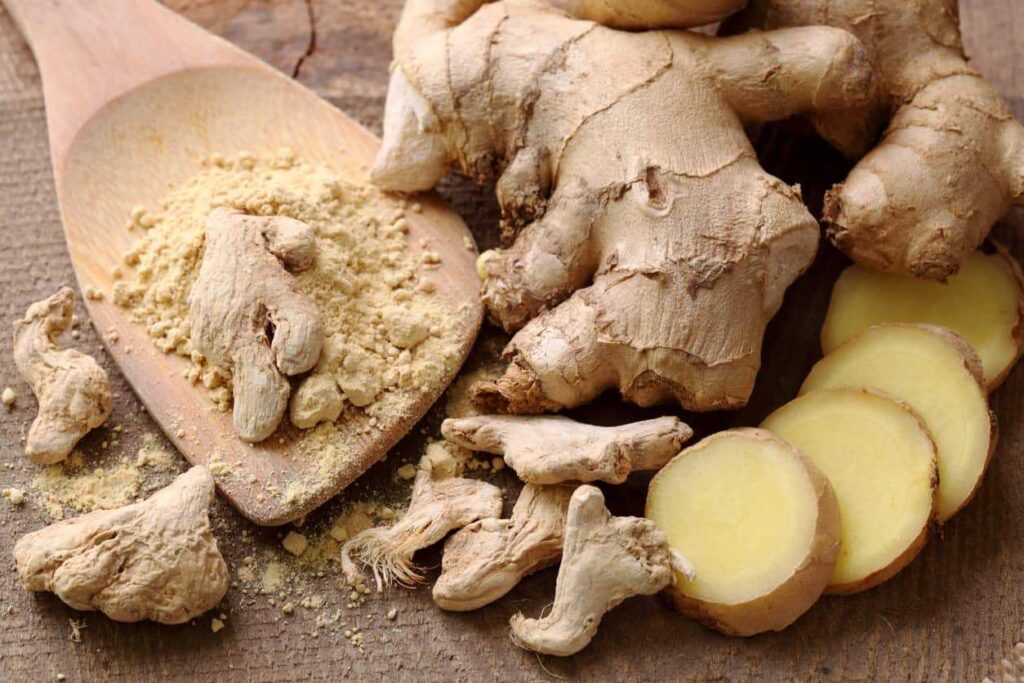
Called the “world domestic remedy,” ginger has been a popular treatment for numerous ailments since the early times [2].
In countries like India and China, both dried and fresh ginger roots were used for nausea, heart palpitation, indigestion, rheumatism, common cold and inflammation [2].
Many also relied on this rhizome for cough and related respiratory disorders [2].
In a study that can be found in the Pakistan Journal of Nutrition, 92 patients with asthma were given either 150 mg of ginger or a placebo every eight hours for two months [3].
This was after their month-long treatment with spirometry [3].
After the treatment period, 19.5 percent of the ginger users experienced relief in wheezing while more than half no longer suffered from chest tightness [3].
Researchers explain that the juice of ginger works by suppressing the body’s hypersensitive reaction to allergens, which is one of the major causes of coughing [3].
Several other studies prove this herb’s efficacy in resolving not only cough but also other serious respiratory problems such as asthma [4, 5].
What You’ll Need:
- 3 tablespoons of ginger, crushed and sliced
- 1 cup of water
- 1 teaspoon of ginger juice
- 1 teaspoon of garlic juice
- 1 teaspoon of honey
Recommended Directions:
- Boil three tablespoons of ginger in water.
- Drink the tea three times a day for five days.
- Combine ginger juice, garlic juice and honey.
- Take a spoonful of the mixture once a day for up to one week.
RELATED: 20 Great Ways Of Using Ginger To Fight Your Acne
2. Turmeric
It’s no surprise that turmeric has been named the “golden spice of life” with its plethora of amazing benefits for the health [6].
For many years, it has been used to treat heartburn, joint pains, ulcerative colitis, hemorrhage, ulcer, irritable bowel syndrome, liver ailments, and diarrhea, among many others.
Its therapeutic effect on the respiratory tract has also been the subject of various studies [7, 8].
One study found that turmeric relieves cough by helping the body expel sputum [7].
The main active compound in turmeric called curcumin has a smoothing effect on the muscles in the respiratory tract, which is another way it works for cough relief [8].
What You’ll Need:
- 1 cup of water
- 1 teaspoon of turmeric powder
- 1 teaspoon of black pepper
- 1 cinnamon stick
- 1 tablespoon of honey
Recommended Directions:
- Boil water in a pot.
- Add black pepper and turmeric powder.
- Add cinnamon stick.
- Let it steep for five minutes.
- Stir in honey.
- Drink this concoction two times a day for one week.
3. Honey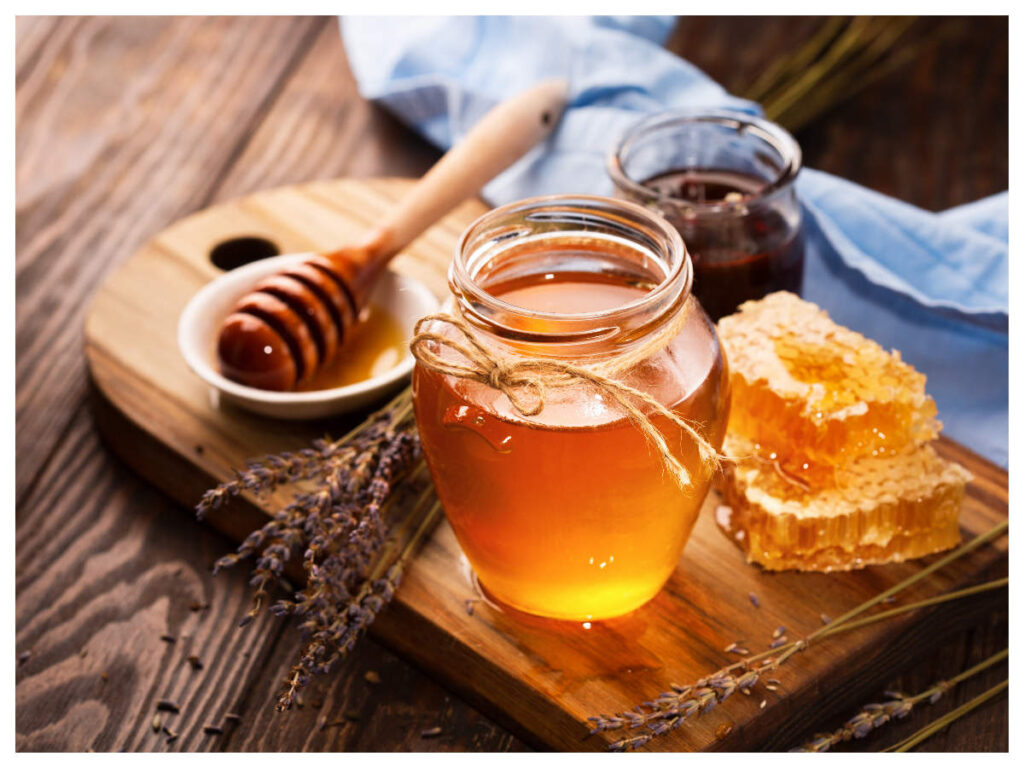
Honey has its own share of remarkable pharmacological properties that have astounded both traditional healers and modern medical experts.
If you’re looking for a safe and efficient way to get rid of coughing, you’d want to consider using honey as remedy.
In 2007, American researchers evaluated the use of honey on some of the 105 children diagnosed with upper respiratory tract infections [9].
Not only did oral intake of honey resulted in reduced frequency of coughing, it also allowed the children to have better sleep at night [9].
It was concluded that that honey is the most favored treatment for nocturnal cough in children as opposed to the use of Dextromethorphan, and leaving the ailment untreated [9].
Another study suggests that honey is a reasonable alternative to over-the-counter cough suppressants as it is safe, low-cost and potentially beneficial in alleviating cough symptoms [10].
More studies have been done to test the efficacy of honey on cough, and most of these yielded positive results [11, 12, 13].
What You’ll Need:
- 1 teaspoon of raw honey
Recommended Directions:
- Swallow honey in the morning before eating anything.
- Do this remedy everyday for one week.
RELATED: How to Use Honey and Cinnamon for Cold
4. Licorice Root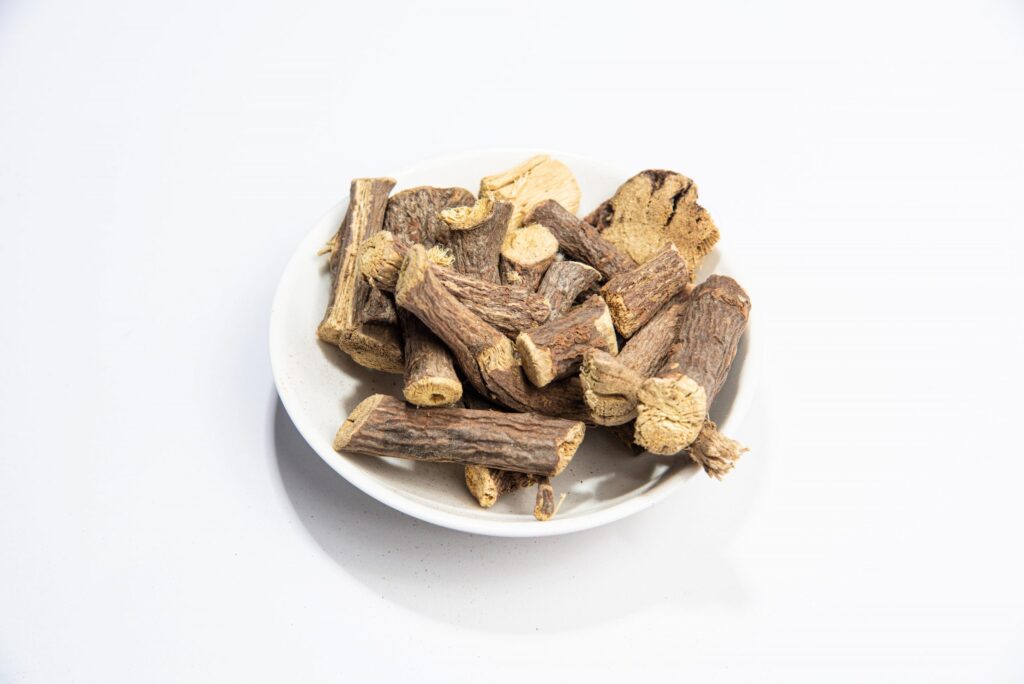
With its many notable benefits for the health, it’s about time that people learn that licorice root is more than just a flavoring for candies.
A natural medicine that has been used by herbalists and physicians since the ancient times, licorice root can actually help treat upper respiratory problems such as cough, throat infection and bronchitis [14].
Experts explain the most of its beneficial effects on the body are due to the presence of an active compound called Glycyrrhizin [14].
Research reports that licorice root contains strong antibacterial compounds that inhibited the activities of upper respiratory tract pathogens such as Streptococcus pyogenes, Moraxella catarrhalis and Haemophilus irnfluenzae [15].
The growth and spread of these bacterial strains are halted before they cause infection in the respiratory tract.
Indeed, licorice root is a quick and safe remedy for coughing, even for children.
What You’ll Need:
- 3 tablespoons of dried licorice root powder
- 10 ounces of water
Recommended Directions:
- Pour water in a pot.
- Bring to a boil.
- Add licorice root and steep for 15 minutes.
- Drink the tea twice a day for five days.
5. Carrot Juice
We’ve always been told to eat carrots as these are good for the eyes.
This is just one of the many health benefits of this root crop, which is loaded with vitamin A, B vitamins, vitamin C, vitamin K, potassium, iron, beta-carotene, copper, and dietary fiber.
As you can imagine, it can help ward off many types of ailments.
The earliest recorded use of carrot as a natural medicine was in the 10th century when it was used to treat cough and smallpox [16].
Today, it’s regarded a helpful remedy for mild cases of coughing.
The Daily Health Post explains that vitamin A in carrots tones down infection in the airways by keeping mucosal surfaces healthy.
It’s not only an efficient remedy for cough, it also works great as a preventive measure.
What You’ll Need:
- 5 carrots, sliced
- 1 cup of water
Recommended Directions:
- Put carrots in a blender.
- Add water.
- Blend until consistency is smooth.
- Drink carrot juice three times a day for one week.
6. Onion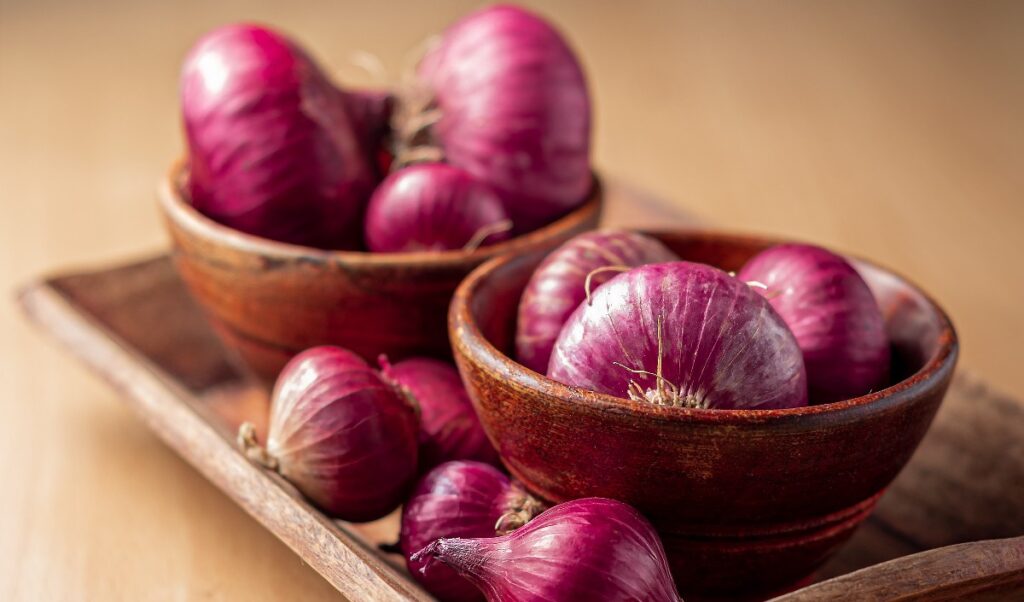
Onions are notable not only for their tear-inducing effects but also for a wide range of wonderful things they can do for people’s health.
The vitamin C and phytochemicals that can be found in onion can boost the immune resistance.
It is also a good source of chromium, which can help stabilize the levels of blood sugar.
As an anti-inflammatory agent, onion is also an efficient way to prevent infections and tone down inflammation.
For those suffering from chronic cough, they can use onion to get immediate relief.
A study published in the West Indian Medical Journal showed that onion had strong antibacterial effects against pathogens that cause infection in the upper respiratory tract [17].
In a separate study, researchers concluded that onion juice when combined with honey proved to be an efficient cough suppressant [18].
Onion is indeed one of the simplest home remedies for cough and other respiratory ailments.
What You’ll Need:
- 1/2 teaspoon of onion juice
- 1 teaspoon of raw honey
- 1/2 slice of onion, minced
- 1 teaspoon of sugar
Recommended Directions:
- Combine onion juice and honey.
- Take this mixture once a day for five to six days.
- Or put minced onion and sugar in a jar.
- Chill in the refrigerator for 24 hours.
- Take a spoonful of the juice and drink it once a day for up to one week.
7. Garlic
Throughout history, garlic has been widely used in culinary and in traditional medicine [19].
For thousands of years, it has been used to strengthen the body’s immunity, protect against cancer, lower blood pressure levels, and prevent heart disease, among others [19].
As a natural antibiotic, it has been found to have strong inhibitory effects against bacteria that infect the respiratory tract [20].
It helps by preventing the formation and spread of these pathogenic bacteria [20].
It has been proven many times to be a powerful remedy against cough, soothing symptoms and providing relief.
What You’ll Need:
- 2 cloves of garlic
- 1 cup of water
- 1 teaspoon of oregano
Recommended Directions:
- Put water and garlic in a pot.
- Boil for a few minutes.
- Add oregano.
- Let it cool.
- Drink the tea once a day for five days.
8. Almonds
Almond’s claim to fame in the medical field is its ability to reduce cholesterol and protect the heart from disease.
Apart from this, it is also an excellent source of protein, vitamin E, copper, magnesium, unsaturated fatty acids and potent antioxidants.
A dried fruit that comes from a tree native to Morocco, it is also a frequently used folk remedy for cough and many other diseases [21].
According to Human Health, almonds help cure respiratory tract infections with its overload of essential vitamins, minerals and antioxidants.
Not only do almonds curb cough and respiratory ailments, they also promote overall health.
By strengthening the immune resistance, it makes the body less susceptible to infections caused by bacteria and viruses.
What You’ll Need:
- 6 almonds
- 1 teaspoon of butter
- 1 cup of almonds
Recommended Directions:
- Soak six almonds in water for 10 hours.
- Crush almonds.
- Mix with butter.
- Eat throughout the day for one week.
- Eat a cup of almonds throughout the day.
- You can snack on them, or include them in your dishes or pastries.
RELATED: Almond Oil for Dark Circles Under Eye: Here’s How to And Why
9. Thyme
Don’t you just love the minty and nutty flavor of thyme?
It’s certainly a great way to add a unique appeal to your dishes.
Apart from using it in cooking, thyme has also earned its place in traditional medicine.
An annual plant that can be found in many parts of the world, thyme has been used orally to treat cough, pertussis, bronchitis and many other health issues [22].
This herb has been revealed to have spasmolytic effects that can dilate bronchial tubes and relax the respiratory tract [23].
By widening the inflamed bronchial tubes, it can become much easier to breathe.
Chest congestion is also relieved in the process.
Needless to say, taking this herb can give you comfort and relief from coughing.
What You’ll Need:
- 3 tablespoons of dried thyme
- 9 ounces of water
- 1 tablespoon of honey
Recommended Directions:
- Put thyme in a pot.
- Pour water.
- Bring to a boil.
- Let it steep for 15 minutes.
- Add honey.
- Drink the tea every night before going to sleep.
- Do this remedy for one week.
10. Grape Juice
Many health experts have reported of the great benefits of drinking grape juice.
Not only does it reduce the risk of heart attacks, it also lowers blood pressure, keeps the skin looking young and fresh, and aids in weight loss efforts.
Live Strong reports that grape juice can also be a good alternative to over-the-counter medications for coughs in toddlers and children.
Rich in vitamins, minerals and antioxidants, grape juice can ward off respiratory tract infections and boost overall health.
In addition, increased intake of fluids makes it easier to expel mucus.
What You’ll Need:
- 1 glass of fresh grape juice
- 1 tablespoon of honey
Recommended Directions:
- Add honey to grape juice.
- Drink once a day for one week.
11. Coffee
Interestingly, coffee does more than give you an energy jolt in the morning.
It’s also an efficient way to get rid of coughing.
A 2013 study featured in the Primary Care Respiratory Journal reported that out of the 97 adults with chronic cough, those who were given a combination of coffee and honey experienced the almost the same relief as those who were given oral steroids [24].
This makes coffee and honey a safer alternative to oral steroids as this combination has much fewer side effects [24].
What You’ll Need:
- 1 to 2 cups of coffee
- 1 teaspoon of honey
Recommended Directions:
- Mix in honey to your coffee.
- Drink coffee in the morning and in the afternoon.
12. Peppermint Oil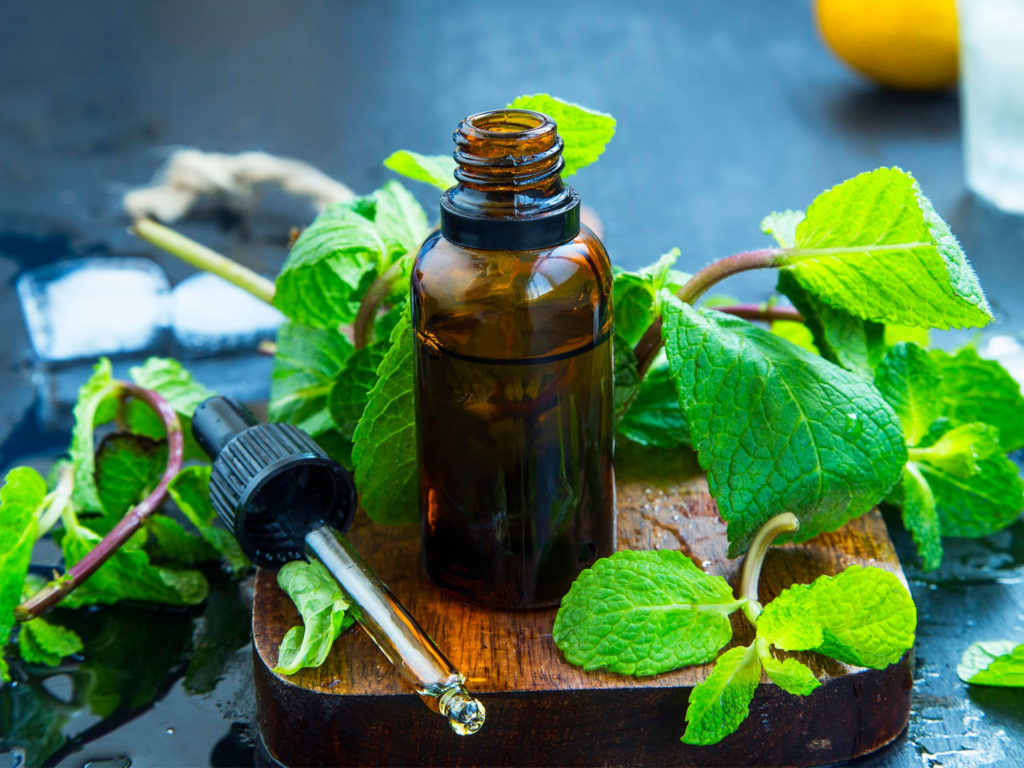
Peppermint oil is much loved for its unique aroma and relaxation effects.
Those who complain of chronic coughing can find comfort using this remedy.
A study performed by scientists from Brazil confirmed that this oil has antispasmodic, anti-inflammatory, expectorant and anti-congestive properties [25].
All these actions are highly used for those who suffer from cough and many other respiratory diseases.
What You’ll Need:
- 1 tablespoon of honey
- 1 drop of peppermint oil
- 5 drops of peppermint oil
- 1 bowl of hot water
Recommended Directions:
- Add one drop of peppermint oil to honey.
- Take this mixture once a day for three days.
- Pour five drops of peppermint oil in a bowl of hot water.
- Inhale the steam.
- Do this several times a day for up to one week.
RELATED: 12 Uses and Health Benefits of Peppermint Oil
13. Salt Water Gargle
Salt is a traditional antiseptic ingredient. The use of salt as an anti-inflammatory and antibiotic agent dates back to 1699 year B.C. in the ancient Egyptian civilization.
Gargling salt water is a popular home remedy for cough, relieving pain, infection, and dental hygiene. Salt contains high pH or acidity level. Thus, gargling saline solution gives a tough time for bad microorganisms inside the body.
Salt water solution has analgesic effects for sore throat, tonsil pain, etc. it can break up and flush out the accumulated cough or phlegm as well.
What You’ll Need:
- 1 teaspoon of salt
- 1 cup of warm water
Recommended Directions:
- Dissolve salt in the mild warm water.
- Take some of the solution in mouth, throw your head back and gargle it for a few minutes.
- Repeat the treatment several times a day to relieve cough naturally.
Conclusion
Coughing can interfere with your daily life.
It can make you feel ill and uncomfortable, and reduce your overall productivity.
Be sure to find an effective remedy before it gets worse. If symptoms persist, visit a medical practitioner.
READ NEXT: 9 Best Essential Oils for Asthma Attacks + (How to Use Them)





